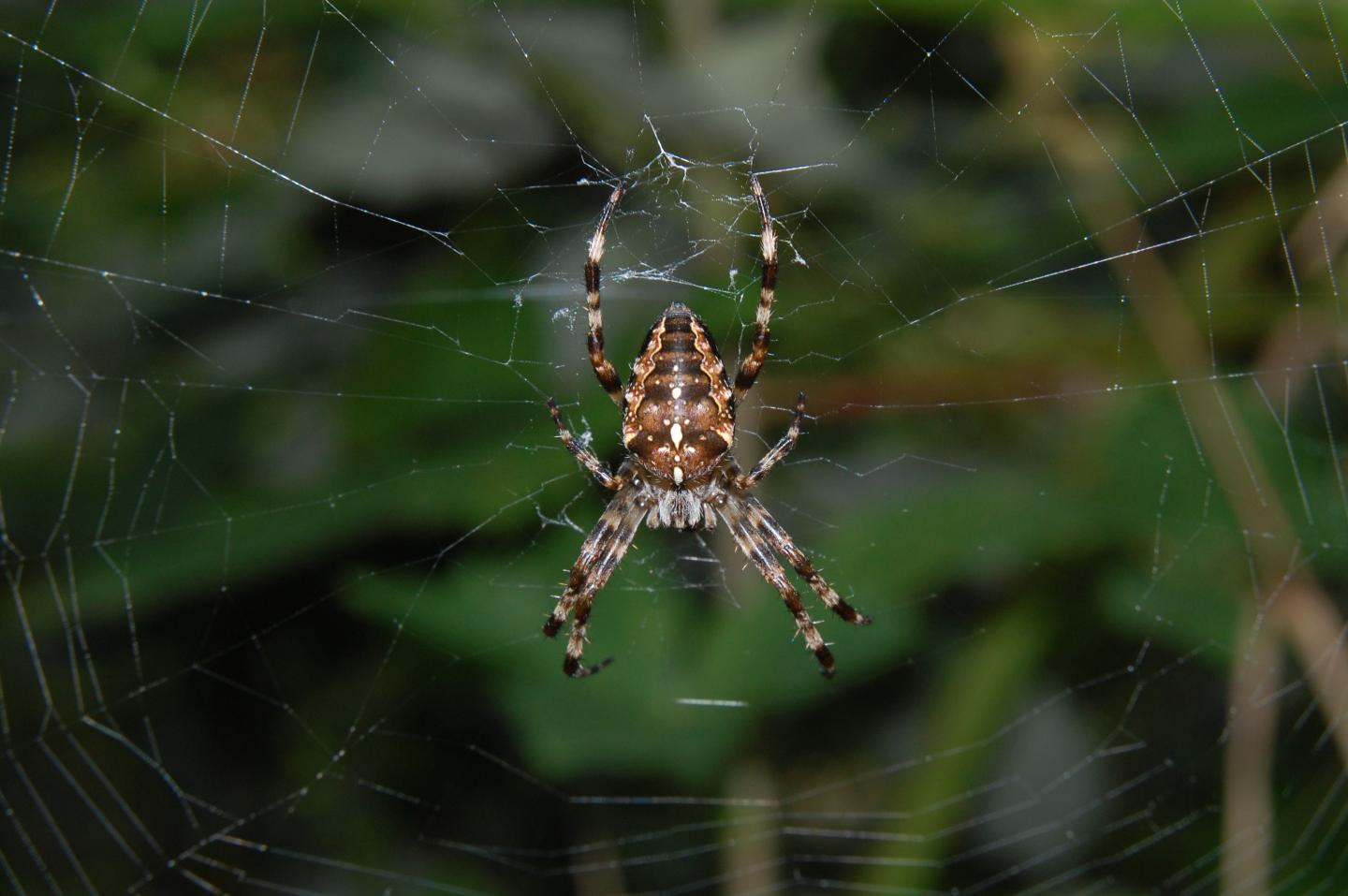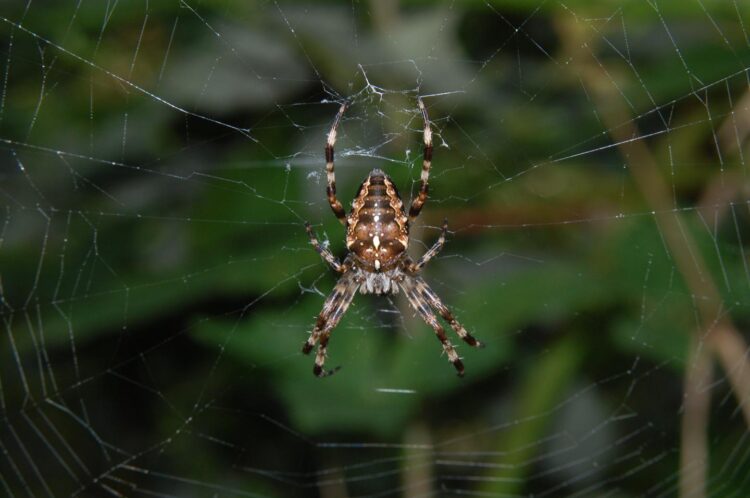
Credit: Rainer Altenkamp
The abundance of large orb web spiders in the Swiss midland has declined drastically over the last 40 years. The main reason for this is the shrinking food supply available to these insectivorous animals. This is demonstrated in a study conducted by researchers from the University of Basel and Ghent University (Belgium), as reported in the scientific journal Insects.
The approximately 48,400 known spider species around the world are among the most important insectivorous animals on earth. One group of these, the orb web spiders, spin conspicuous wheel-shaped webs. The perhaps best known and so far very common orb web spider species in Europe is the European garden spider Araneus diadematus. Apart from house gardens, their preferred habitats include parks, graveyards, hedgerows, forest edges and clearings.
Average population density of the spider about 140 times lower
The European garden spider is easily recognizable by the bright, cross-shaped mark on the upper side of its abdomen. The females of this spider species which measures 10 to 18 mm as adults, legs not included, spins webs with a diameter of about 30 cm. In late summer 2019, the entomologists determined the population density of the European garden spider in the Swiss midland in 20 representative habitats: they counted the spider webs in test plots ranging from 200 to 1,000 square meters and converted these values to the number of webs per square meter.
The results: in comparison with data from the 1970s and 1980s, the abundance of this spider has decreased alarmingly. The average population density in Switzerland, for example, is 140 times lower than the previous European average value. In two thirds of the sample plots inspected, no spider webs were found at all. The webs contained significantly fewer insects than in previous studies. Furthermore, the web threads were found to be considerably thinner, as is the case when spiders are malnourished.
Small flying insects as food
Most species of orb web spiders feed almost exclusively on small flying insects, such as flies, midges, and aphids, which are most affected by insect declines. That the population density of the European garden spider dropped to a very low level in more recent times, has also been shown in a study conducted in Northern Belgium. Not only the European garden spider – which still exists almost everywhere in the Swiss midland – but also other web-spinning spider species are now found less frequently than in the last century. “The results of our study are a strong indication for an insect meltdown in large parts of Europe,” says lead author Dr. Martin Nyffeler from the University of Basel. The study furthermore suggests that those animals that feed on insects are affected by it, too: “If the abundance of insects and their natural enemies is decreasing drastically, ecosystems become impoverished and may eventually collapse.”
###
More information
PD Dr. Martin Nyffeler, University of Basel, Section of Conservation Biology, Tel. +41 61 702 07, E-Mail: [email protected]
Media Contact
Christoph Dieffenbacher
[email protected]
Original Source
https:/
Related Journal Article
http://dx.





